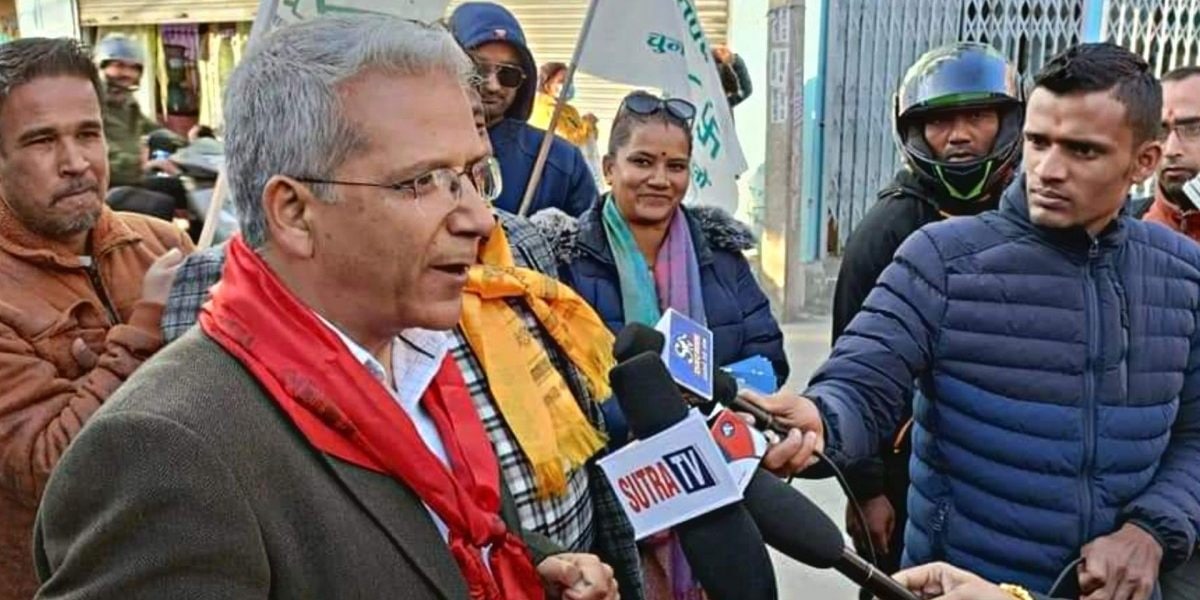The Maoists and the UML are back to sharing power despite not winning the mandate for it
There seems to be no limit to the opportunism in Nepal’s top polity. Newly minted Prime Minister Pushpa Kumar Dahal’s Communist Party of Nepal (Maoist-Centre) was part of a six-party alliance led by the Nepali Congress that collectively finished just above the absolute majority mark in the parliamentary elections held in November. The CPN(M-C) won just 11.13% of the votes, getting 32 seats in the 275-member House of Representatives. The party’s poor performance was hardly any disincentive for Mr. Dahal to claim the post of prime minister from his party’s senior partner, the NC. After being denied this, legitimately, in his blatant hunger for power, he immediately took the expedient route of aligning with the leading Opposition party, the Communist Party of Nepal (Unified Marxist-Leninist) led by Khadga Prasad Oli, securing the Prime Minister’s post, for a period of half of the term of the new government. The new coalition led by the UML and the Maoists includes the newcomer Rastriya Swatantra Party (RSP) and five smaller parties. The RSP promised a break in the political wheeling-dealing that has characterised Nepali politics but the fact that it jumped at the first chance to join an opportunist alliance — its leader Rabi Lamichhane is now Deputy Prime Minister and a Home Minister in the government — would have belied the hopes of its adherents.
The Maoists and the UML are back to sharing power despite not winning the mandate for it
There seems to be no limit to the opportunism in Nepal’s top polity. Newly minted Prime Minister Pushpa Kumar Dahal’s Communist Party of Nepal (Maoist-Centre) was part of a six-party alliance led by the Nepali Congress that collectively finished just above the absolute majority mark in the parliamentary elections held in November. The CPN(M-C) won just 11.13% of the votes, getting 32 seats in the 275-member House of Representatives. The party’s poor performance was hardly any disincentive for Mr. Dahal to claim the post of prime minister from his party’s senior partner, the NC. After being denied this, legitimately , in his blatant hunger for power, he immediately took the expedient route of aligning with the leading Opposition party, the Communist Party of Nepal (Unified Marxist-Leninist) led by Khadga Prasad Oli, securing the Prime Minister’s post, for a period of half of the term of the new government. The new coalition led by the UML and the Maoists includes the newcomer Rastriya Swatantra Party (RSP) and five smaller parties. The RSP promised a break in the political wheeling-dealing that has characterised Nepali politics but the fact that it jumped at the first chance to join an opportunist alliance — its leader Rabi Lamichhane is now Deputy Prime Minister and a Home Minister in the government — would have belied the hopes of its adherents .
The renewal of the alliance between the two “leftist” parties — barely years after the falling out between the UML faction led by Mr. Oli and the Maoists led to a change of government with the NC aligning with the Maoists and a smaller UML faction led by Madhav Kumar Nepal besides other parties — suggests that the loaves of power, rather than ideology or principle, are what are more tempting for Mr. Oli and Mr. Dahal. The “Left” alliance had after all broken up due to legitimate grievances with Mr. Oli’s authoritarian attitude and his manoeuvres to hold on to power. For Mr. Dahal to repeat his habit of performing political volte-faces and to join hands with Mr. Oli despite a clear mandate for the pre-election coalition that he was a part of, suggests yet another period of opportunistic political wrangling that would hamper governance in Nepal. Mr. Oli has managed to make the best out of an unfavourable situation for his party by securing nominations to the post of President and Speaker from his party, reportedly as part of the arrangement with Mr. Dahal, besides gaining plum ministerial posts to help with the usual politics of patronage . But by subverting mandates for short-term gains, the Maoists and the UML are only perpetuating instability and lowering the trust of the people in the democratic system in a country that endured two upheavals to become a constitutional republic .
